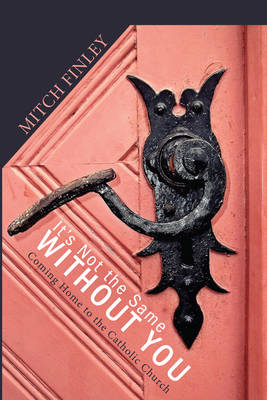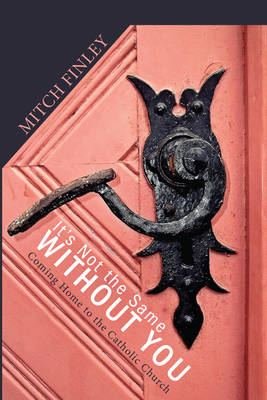
- Afhalen na 1 uur in een winkel met voorraad
- Gratis thuislevering in België vanaf € 30
- Ruim aanbod met 7 miljoen producten
- Afhalen na 1 uur in een winkel met voorraad
- Gratis thuislevering in België vanaf € 30
- Ruim aanbod met 7 miljoen producten
Zoeken
Omschrijving
In a heartfelt invitation to lapsed or estranged Catholics, Mitch Finley takes a realistic look at the reasons people feel alienated, and proposes ways to overcome the anger, bitterness, and resentment so that they may return. Sixty million people in the United States claim a Catholic identity. The next largest group--approximately nine million--is made up of people who are ""fallen away"" Catholics. Mitch Finley addresses this audience, as well as parents struggling with the almost inevitable teenage rebellion against religion. Finley examines a wide variety of reasons Catholics choose to leave the Church, treating each one in a fair-minded way. He recounts dozens of true stories about people who left and returned, a few about those who have yet to return, and candidly acknowledges that many--perhaps most--active Catholics experience periods of estrangement. Asking forgiveness on behalf of the Church for the ways lapsed Catholics may have been hurt by the institution or its official representatives, he also reminds readers that forgiveness needs to go both ways. Encouraging Catholics to begin a new relationship with their religion, Finley suggests ways to become part of a parish once more. He also discusses the Church's obligations to those who have left, highlighting successful outreach programs. In guiding readers along the path from alienation to reconciliation, Finley shows that there are good reasons for ""coming home again,""
Specificaties
Betrokkenen
- Auteur(s):
- Uitgeverij:
Inhoud
- Aantal bladzijden:
- 194
- Taal:
- Engels
Eigenschappen
- Productcode (EAN):
- 9781625645685
- Verschijningsdatum:
- 1/01/2014
- Uitvoering:
- Paperback
- Formaat:
- Trade paperback (VS)
- Afmetingen:
- 140 mm x 213 mm
- Gewicht:
- 249 g

Alleen bij Standaard Boekhandel
+ 53 punten op je klantenkaart van Standaard Boekhandel
Beoordelingen
We publiceren alleen reviews die voldoen aan de voorwaarden voor reviews. Bekijk onze voorwaarden voor reviews.











